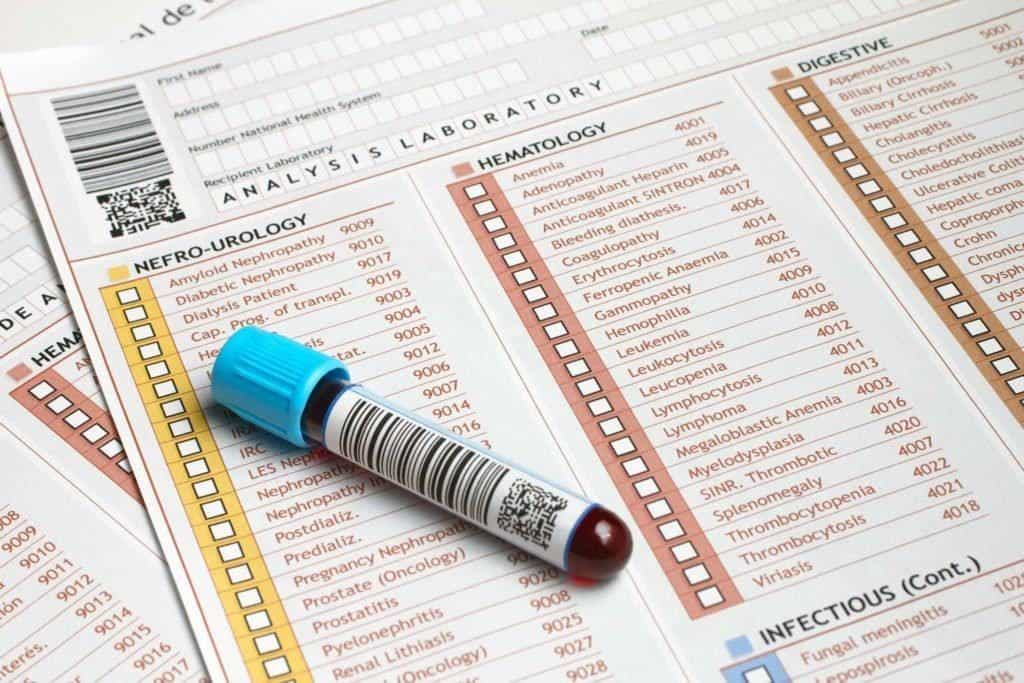Contents:
- Medical Video: Will my baby be big or overweight if I have gestational diabetes? -Dr. Madhushree Vijayakumar
- How do you give birth to a large baby?
- Are there health risks for large babies?
- 1. Lower blood sugar levels
- 2. Obese babies
- 3. Metabolic syndrome
Medical Video: Will my baby be big or overweight if I have gestational diabetes? -Dr. Madhushree Vijayakumar
Maybe you already know that babies born with low weight can increase their risk of getting various diseases when they grow up. Then, what about babies who have more than normal weight at birth?
Babies are said to be large or have excess weight if the weight has reached more than 4000 grams. This baby is usually called a big baby or macrosomia. The thing that causes big babies is usually because the mother has gestational diabetes, the mother is obese, the excess weight gain during pregnancy, or the baby is born at the time of birth which is very past.
Of course, babies with excess weight also have their own problems, from the process of childbirth to the health problems that haunt him after being born into the world.
How do you give birth to a large baby?
The initial challenge when having an overweight baby from the womb is the birth process. Giving birth to a baby with a normal body weight is not easy, especially a baby with excess weight. Of course, this is a problem for both the mother and the doctor who handles her birth, but is still able to give birth normally.
It takes longer to be able to give birth to a large baby. The risk of experiencing more bleeding and more severe perineal wounds can also occur during the birth process. If your baby weighs more than 4500 grams, your baby will experience shoulder dystocia during the birth process with a possibility of 1/13.
Shoulder dystocia is a condition in which the shoulder is trapped inside after the doctor manages to pull his head out. The possibility of this happening is greater in babies with greater weight. This is a rare situation, but it is very serious because it can cause severe injury and even death. Good handling can make your baby get out of your body safely, this requires certain techniques.
If a normal delivery is very difficult and has many risks, you can give birth by caesarean section. For those of you who have diabetes during pregnancy (so your baby is big), you might be advised to give birth by caesarean section. Or, maybe your doctor will induce labor early after the womb reaches 38 weeks. However, inducing labor early does not show any benefit, according to the American College of Obstetrics and Gynecologists. It is best to discuss with your doctor and plan your child well before birth.
Are there health risks for large babies?
Difficulties at delivery carry health risks to the baby. Baby's shoulders trapped under the bones of the mother's pelvis during labor can cause nerve damage to the baby's shoulders, arms and neck. Nerve damage occurs in 2-16% of infants who have shoulder dystocia. This is more likely to happen if your baby is very big. However, it can also be caused by the pressure from very strong contractions. If your baby has some nerve damage or the baby's cervical vertebrae are damaged due to labor, he can still recover fully.
In addition to nerve damage, difficulty in giving birth to a large baby can also result in the baby needing breathing assistance after labor and having thicker heart muscle abnormalities.
Other complications that can occur if your baby is too big are:
1. Lower blood sugar levels
Babies diagnosed with macrosomia (large babies) are more likely to have lower than normal blood sugar levels. Large babies are usually born to a mother who has diabetes during pregnancy (gestational diabetes). Mothers with diabetes who experience increased blood sugar levels are more likely to have large babies because the main nutrients that control a baby's growth are sugar. Excess blood sugar and insulin production can cause excess growth and fat storage, making the baby big.
In the womb, these babies are accustomed to high blood sugar levels, but when they are born, the source of this baby food is cut off. As a result, large babies tend to have low blood sugar and need to be monitored after birth.
2. Obese babies
Research shows that the risk of obesity increases because the weight of a newborn baby also increases. Large or obese babies usually come from mothers who are also obese. Obese women have a risk of two or three times higher for gestational diabetes during pregnancy compared to women who are not obese. Obese women should avoid excessive weight gain during pregnancy in an effort to reduce the risk of gestational diabetes and give birth to large babies.
3. Metabolic syndrome
If your baby is diagnosed with macrosomia, he is at risk of developing metabolic syndrome during childhood. Metabolic syndrome is a group of conditions characterized by increased blood pressure, high blood sugar levels, excess body fat around the waist, or abnormal cholesterol levels. Metabolic syndrome can increase the risk of heart disease, stroke and diabetes.
According to Dr. Kristin Atkins, a mother and baby specialist at the University of Maryland School of Medicine, the best way for women to prevent large babies is to monitor what they eat and control diabetes if they are diagnosed with diabetes during pregnancy, as reported by Live Science.
READ ALSO
- The Importance of Normal Weight in Newborns
- What is the Limit for Increasing Weight When Pregnant?
- 6 Causes of Low Birth Weight Babies












